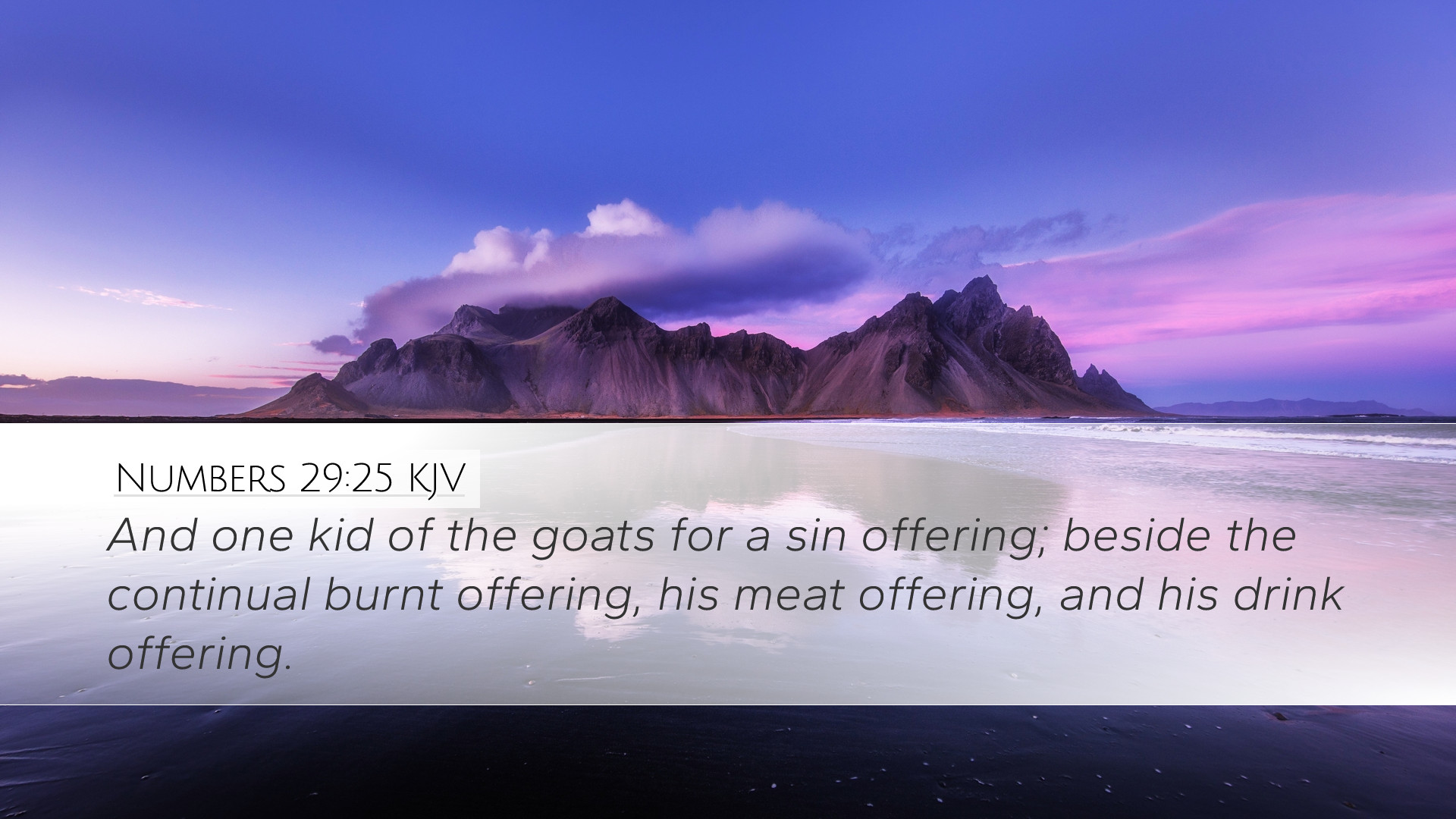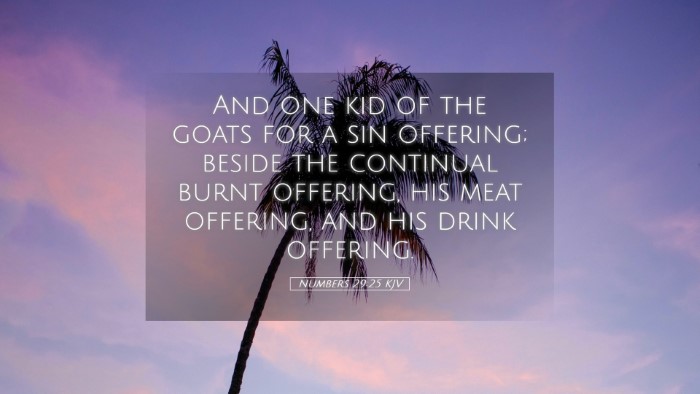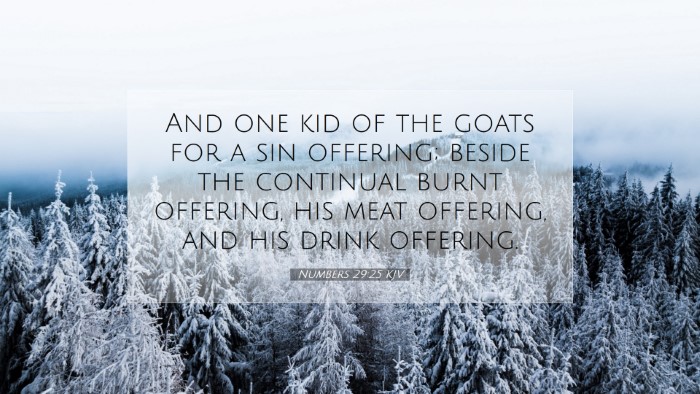Commentary on Numbers 29:25
Verse Summary: Numbers 29:25 records the instructions regarding the feast of the seventh month, particularly discussing the offerings required during this time. It emphasizes the significance of the Day of Atonement and highlights the communal aspect of worship.
Context and Background
To fully comprehend the depth of Numbers 29:25, it is crucial to understand its context within the book of Numbers, particularly the instructions concerning holy convocations, offerings, and rituals that are to be observed by the Israelites.
This particular verse is situated in the midst of enumerating the festivals and sacrifices ordained for the Israelites, emphasizing the sanctity and observance of the calendar of feasts that aligned with their covenant relationship with God.
Insights from Public Domain Commentaries
Matthew Henry's Commentary
Matthew Henry elaborates on the importance of religious observances during the feasts, noting that each appointed time brings the community together to acknowledge God's provisions and grace. He emphasizes the necessity of sacrifices, not only as an act of worship but as a means of recognizing one's dependence on God. In Numbers 29:25, the reference to offerings is part of a much broader theme of atonement and thanksgiving.
Henry notes the theological significance of the offerings, writing, “These sacrifices were types of the great sacrifice of Christ, which was to be made for the atonement of sin.” Through these rituals, the people of Israel were meant to realize their need for reconciliation with God, foreshadowing the ultimate sacrifice of Jesus Christ.
Albert Barnes' Notes on the Bible
Albert Barnes highlights that the offerings mentioned in this verse serve both a ceremonial and a moral purpose. Barnes underscores that the sacrifices during the Feast of Tabernacles were intended to promote community spirit and remembrance of God's faithfulness throughout the wilderness journey.
He states, “The observance of these feasts was not merely a ceremonial duty, but a reminder of the need for spiritual vigilance and purity.” Barnes argues that such communal gatherings fostered a sense of identity and belonging among the Israelites, reinforcing the unity that is essential for their covenant community.
Adam Clarke's Commentary
Adam Clarke provides detailed observations about the specifics of the offerings, noting the quantity and type of sacrifices required. He asserts that these sacrifices were immense in number, signifying the importance of the feast in the Jewish liturgical calendar.
Clarke adds that these instructions underline God's desire for His people to approach Him with reverence and a spirit of humility. He notes that “The number and variety of sacrifices were designed to express the depth of emotion and gratitude the people ought to feel towards God for His many mercies.” In this way, Clarke captures the profound relational dynamics between the Divine and His people during worship.
Theological Implications
Numbers 29:25 serves as a vital reminder for contemporary congregations and theologians of the importance of structured worship and genuine sacrifice. The verse encapsulates core elements of the faith journey—acknowledgment of sin, the need for atonement, and the celebration of God's forgiveness.
This passage also encourages reflection on the communal aspect of worship. Today’s church is called to gather and partake in communal rituals that foster spiritual growth, unity, and a deeper understanding of God’s grace and mercy, just as the Israelites were instructed to do.
Practical Applications
- Encourage Community Worship: Church leaders should foster environments where church members can come together to worship and celebrate God's goodness, reflecting on the teachings from Numbers 29:25.
- Focus on Atonement: Preaching should consistently highlight the central theme of atonement in the context of worship—recognizing our sins and seeking God’s mercy and forgiveness.
- Reinstate Rituals: Churches could consider reinstating certain rituals that may enhance the worship experience, much like the offerings in Numbers, providing tangible expressions of our faith and gratitude.
- Educate on Biblical Feasts: Teaching congregations about the significance of the Jewish feasts can enrich understanding and appreciation for God’s redemptive timeline, linking Old Testament practices with New Testament fulfillment.


